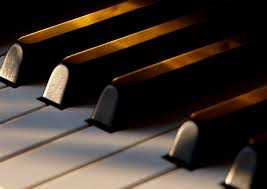
Tambourines and Accordians
I recently returned from my second mission outreach in beautiful Belize. I say beautiful because the people and children there have stolen my hearts many times over, and although there are certainly beautiful, breath-taking parts of Belize, the area I traversed is extremely poor—the children are often without electricity, water and only manage to eat, on average, one meal a day.
I spent all day Saturday teaching on fruits of the Spirit to the amazing women who had gathered in Belmopan and on Sunday I found myself sitting on a simple wood bench in the tiny chapel of Mahogany Heights, exhaustion weighing down every limb as I cradled a petite little village boy in my arms as he slumbered. Sunday School had worn him out.
It’s a feeling I’m often acquainted with—being a speaker, a singer, an author is a draining endeavor. You pour out every part of yourself to minister and the after math usually involves a feeling similar to being ‘used up’. A listless void that only time, sleep and time with God can fulfill.
But despite my exhaustion, when worship started, something stirred in my heart. Understand, there was no slick presentation, no air-conditioning to battle the sticky humidity, no praise band, no power point screens, not even a hip-looking worship leader.
Instead, one of the congregation’s only musicians stood, welcomed the group, grabbed his acoustic guitar and began singing, encouraging the congregation to sing along. His wife eased next to side, shaking a tambourine. People smiled and clapped, laughed and sang with happy abandon. And my exhaustion suddenly fled.
 I’ve never was one to bash the use of certain instruments in worship. If a bird can sing and crickets can chirp for the glory of God, guitars, drums, piano or organs shouldn’t matter. (With the possible exception of an accordion. By the way, do you know the difference between an accordion and an onion? No one cries when you cut up an accordion. But I digress…)
I’ve never was one to bash the use of certain instruments in worship. If a bird can sing and crickets can chirp for the glory of God, guitars, drums, piano or organs shouldn’t matter. (With the possible exception of an accordion. By the way, do you know the difference between an accordion and an onion? No one cries when you cut up an accordion. But I digress…)
There was no defining style of music that morning—contemporary praise songs were mixed with old hymns. No one worried about needing to break up the services based on music preference. Children sang during the adult-focused songs and adults happily acted out the motions when a children’s song arose. There were no divisions, no worries about what instruments should be used for they simply used what they had. People stood to give spontaneous testimonies about what God had done for them during the past week or petition the hearers to lift a loved one in prayer. After the sermon, the entire congregation stood and clasped hands, thanking God for binding their hearts together through Him.
I was helpless to stop the tears stinging my eyes. There was something achingly beautiful about their worship. And for a few minutes, their simple adoration of the King led me right to the feet of His throne.
The poignant moment made me wonder….perhaps our arguments about contemporary versus traditional, piano versus guitars, electric versus acoustic is because we have so much. Too much. We have our priorities out of whack, and just maybe, we have made idols out of things that seem spiritual but are not.
Let me explain. It seems that more and more, we try to keep up with the spiritual ‘Joneses’ and wonder if we changed this or that if it would attract more people. The ones who resist any change dig in their heels and those who easily embrace it plow ahead. We make our music hipper, smoother, piling on the instruments and making sure our ‘worship’ is a slick package with no flaws, no mistakes—a carefully orchestrated appeal to all men everywhere. And all the while we wonder if our edgier music style is more ‘relevant’ to the outside world.
But relevance doesn’t amount to much if you aren’t connected to God in the first place. You can’t lead anyone to the feet of God in worship if you haven’t been there yourself.
Did you know that modern statistics have shown that a growing number of people, seekers and regulars alike, are turning away from the glossy, worship packages we’ve tried so desperately to employ? Why? Many people polled have confessed it’s because the ‘relevant’ approach doesn’t feel real. To some, it felt like a show, a desperate sales-pitch for God. An advertisement that left them hollow.
Have we lost what true worship is? Are we desperately clawing our way into ‘relevance’ because other successful churches have done it? Or because we can take a measure of satisfaction in saying, “Look how tight our praise team’s harmonies are.”? “Our musicians are the best.” “Our worship leader opened for ____________.” (Fill in the blank here.) If so, the burning question reveals our heart’s true motivation…pride.
Pride is the antithesis of what worship is. Pure worship is a stripping of our pride, our self-delusions, our hopeless attempts to have it together and bow in praise and thankfulness to the only One who can save us in our wretchedness. It’s rejoicing because of Him, thanking Him, surrendering to Him, loving Him…only about Him.
Some same hymns, though full of deep truth, are old and dull, riddled with long-dead archaic words sung by people who look bored to tears. Others say the new contemporary style is nothing but show, a loud display that focuses only on emotion and dazzling lights and contains little in the way of truth. And indeed, both of these extremes can and have played a part in churches around the world. But in all honesty, the problems that arise have little to do with the songs, instruments or style…it has to do with the heart of the worshipers.
 If you’re bored singing old songs of truth, your heart isn’t in it. If you’re unhappy unless you’ve heard the church guitarist perform a sweet rift during some rhythmic pumping tune, your focus is on the wrong thing.
If you’re bored singing old songs of truth, your heart isn’t in it. If you’re unhappy unless you’ve heard the church guitarist perform a sweet rift during some rhythmic pumping tune, your focus is on the wrong thing.
You see, I fear our society, even our own Christian culture, has been infected with a germ…a germ that is growing and mutating into a monster that will overshadow every aspect of our lives if we don’t learn to kill it. It’s called the Performance Bug.
The Performance Bug makes us feel better because it’s measurable. It’s easy to see so therefore easy to control. It allows a human to assign value to another human based on achievement, a marker much different than value measured through God’s eyes, I might add.
The Performance Bug strokes our pride and egos when we do well but decreases the perception of our worth when we fail. It teaches us to strive for the praise of man but doesn’t reveal how ultimately bankrupting this pattern of living can be. The Performance Bug tells us our children have to hit a certain mark of acceptance on a standardized test or they will be doomed for a life of failure and low-paying jobs. The Performance Bug tells women that if they just lose a few more pounds or dress more provocatively, they’ll snag Mr. Right’s attention. (FYI, ladies, if you have to go to extreme measures to get Mr. Right, Mr. Right is Mr. Wrong.) The Performance Bug says we need to sell this many books, win this award or achieve this recognition and we’ll have everything our soul longs for.
 Don’t get me wrong here. I’m not saying one music style is better than the other or that we shouldn’t give our best. Excellence is a wonderful and godly thing. The problem is when we let our achievements define us, our churches, our families or our spirituality.
Don’t get me wrong here. I’m not saying one music style is better than the other or that we shouldn’t give our best. Excellence is a wonderful and godly thing. The problem is when we let our achievements define us, our churches, our families or our spirituality.
The Performance Bug is the opposite of grace. It says you have to jump so high, run so fast or receive this size pay check to be valued and worthy. But Grace says that you’re a broken mess yet more precious than gold in the eyes of the Creator.
When I die and stand before God, He won’t ask me how many CDs I sold or I how many people I managed to pack into that stadium. The question will reveal if I truly loved Him with all my being and if I showed that love to others. When those two things are in the forefront of our lives, worship is a natural outpouring, spilling into everything else we touch.
So whether it’s a piano or electric guitar, drum set or organ, hymns or praise songs, toe-tapping or a capella, tambourines or accordions, the focus is lose our ego, our wishes, our pride and worship the only One who is worthy.
Everything else is noise.
Especially when it comes to accordions.
